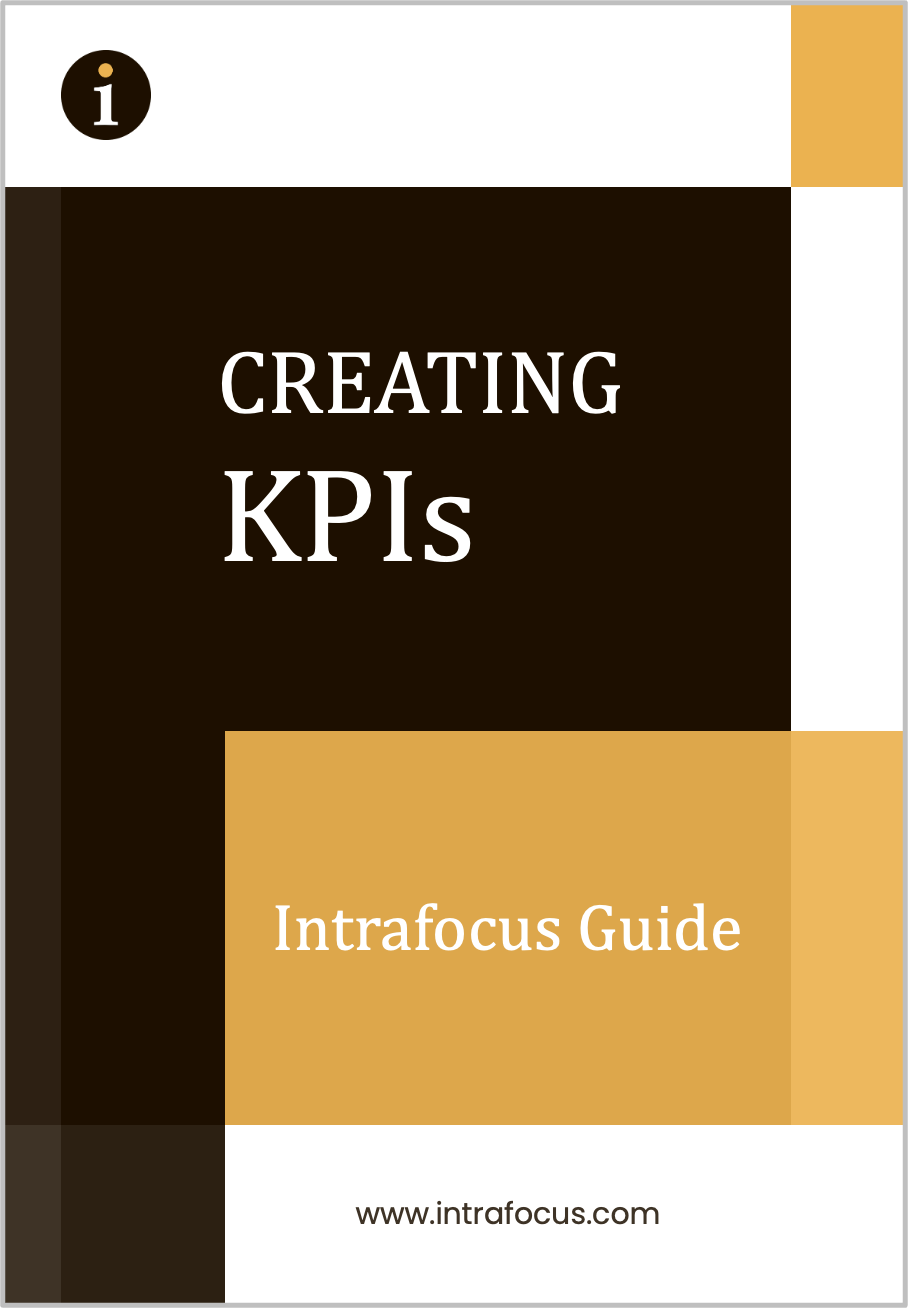The Convergence of Consultancy and Technology
Managing Key Performance Indicators (KPIs) effectively is critical to your organisation’s success. Traditionally, expert consultancy has played a vital role in shaping how organisations define and utilise these indicators. With their wealth of experience and industry-specific knowledge, consultants guide businesses in identifying the most relevant KPIs, ensuring they are aligned with the company’s strategic objectives. However, the dynamic nature of modern business operations demands more than expert insights; it calls for integrating technology to track and analyse these performance metrics efficiently.
This is where KPI management software comes into play, complementing the foundational work done by consultants. Software solutions, like Spider Impact, offer an automated, streamlined approach to tracking and visualising KPIs, allowing for real-time analysis and decision-making. While this article briefly touches on Spider Impact as an example, our focus extends beyond any single software, exploring the broader landscape of how technology enhances and elevates the consultancy-driven KPI framework.
As we delve into this interplay between consultancy expertise and technological innovation, it becomes clear that their convergence is beneficial and essential for businesses seeking to navigate the complexities of contemporary performance management. This article aims to unravel the nuances of this integration, highlighting how it can lead to more informed decisions, better alignment with strategic goals, and, ultimately, a more robust, more resilient business model.
The Value of Consultancy in KPI Management
Key Performance Indicators (KPIs) serve as the navigational instruments for businesses, steering them towards their strategic objectives. However, identifying and crafting effective KPIs is a nuanced process that significantly benefits from consultants’ specialised expertise. These professionals bring experience and an understanding of industry-specific challenges and trends that are invaluable in shaping a robust KPI framework.
Consultants are crucial in ensuring that KPIs are not just arbitrary metrics but are closely aligned with the organisation’s goals and values. They help businesses decipher the vast array of data and metrics available, selecting those that truly matter. This process involves a deep dive into the company’s operations, goals, and industry context. It’s about understanding what drives success in a particular business environment and how this success can be measured and replicated.
A significant advantage of engaging consultants in KPI management is their objective perspective. Consultants can provide honest, unbiased insights without internal biases or preconceived notions. They can identify potential blind spots in a company’s strategy and suggest KPIs that might be overlooked. Their external viewpoint allows for a more holistic assessment of what the company needs to track and improve.
Furthermore, consultants can offer guidance on balancing leading and lagging indicators, ensuring that KPIs measure past performance and predict future trends. This balance is crucial for companies to understand their historical performance and stay agile and responsive to emerging trends and challenges.
In addition to helping define KPIs, consultants can assist in setting realistic yet challenging targets. They understand that setting the bar too high or too low can be equally detrimental. Their expertise lies in finding that sweet spot where KPI targets are ambitious enough to drive growth and improvement yet attainable sufficiently to keep teams motivated and engaged.
Consultancy in KPI management is not just about selecting the right metrics; it’s about embedding these metrics into the fabric of the organisation’s strategy and culture. Consultants help businesses navigate the complex data web, offering clarity, objectivity, and strategic alignment. Their contribution lays the groundwork for a KPI framework that is effective in measuring performance and instrumental in driving it.
Technology as a Catalyst for KPI Efficiency
Technology is pivotal in enhancing the efficiency and effectiveness of Key Performance Indicator (KPI) management. KPI software solutions are designed to automate and streamline performance metrics tracking, analysis, and reporting, thereby transforming how organisations monitor and react to their operational data.
One of the primary benefits of incorporating technology into KPI management is the ability to handle large volumes of data efficiently. In an era where data is generated at an unprecedented rate, KPI software adeptly aggregates and processes this information, offering clear and concise insights. This capability is crucial for businesses, enabling them to quickly identify trends, patterns, and areas of concern without getting bogged down in data analysis paralysis.
Moreover, technology enhances the accessibility and visualisation of KPIs. Modern software solutions provide intuitive dashboards that display key metrics in a user-friendly format, often in real time. This visualisation is not just about aesthetics; it’s about making data understandable and actionable for all stakeholders, regardless of their technical expertise. By presenting data in an accessible manner, KPI software ensures that informed decisions can be made swiftly and confidently.
Another advantage of using technology in KPI management is facilitating communication and collaboration. Many KPI software tools offer features that allow team members to share insights, annotate reports, and even set up alerts for specific metrics. This level of interactivity fosters a more engaged and collaborative approach to performance management, ensuring that all team members are aligned and working towards common goals.
In essence, technology acts as a catalyst in the realm of KPI management, simplifying the process of tracking and analysing key metrics and empowering businesses with the agility and insight needed to stay ahead in a competitive environment. Integrating technology in KPI management is not just a matter of convenience; it’s a strategic imperative for businesses aiming to harness the full potential of their performance data.
Integrating Consultancy Insights with KPI Software
Integrating consultancy insights with KPI software represents a strategic fusion of human expertise and technological efficiency. This synergy is vital for businesses creating a comprehensive and dynamic KPI management system. With their deep understanding of business strategies and industry-specific challenges, consultants offer invaluable insights into what should be measured and why. When these insights are coupled with the advanced capabilities of KPI software, businesses gain a powerful tool for driving performance and achieving strategic goals.
Consultants start by helping businesses identify the most relevant KPIs, ensuring they are aligned with organisational objectives. This process goes beyond mere number-crunching; it involves a nuanced understanding of the business’s unique environment, competitive landscape, and long-term vision. Consultants can pinpoint which metrics will provide the most valuable insights and how they can be effectively tracked and interpreted.
Once these KPIs are identified, KPI software comes into play. The software automates the data collection and analysis, providing real-time updates and comprehensive reports. This technological solution eliminates the manual, time-consuming aspects of KPI tracking, allowing businesses to focus more on strategic decision-making than data management. The software’s dashboards and visualisation tools also make it easier to communicate complex data in a straightforward, accessible manner, ensuring that all team members can understand and act upon the information.
The value of integrating consultancy insights with KPI software lies in the continuous improvement loop it creates. Consultants can regularly review the data generated by the software, providing ongoing advice and adjustments to ensure the KPIs remain relevant and impactful. This iterative process helps businesses stay agile, adapting their strategies in response to both internal performance metrics and external market dynamics.
Integrating consultancy insights with KPI software is crucial for businesses seeking a holistic approach to KPI management. This combination ensures that the chosen KPIs are strategically sound and guarantees efficient tracking and analysis, leading to more informed decision-making and enhanced business performance.
Case Studies: Success Stories of Integration
The integration of consultancy insights with KPI software is best illustrated through real-world examples. These case studies showcase how businesses have successfully combined the strategic guidance of consultants with the analytical power of KPI software, leading to significant improvements in performance management and decision-making.
Case Study 1: Retail Industry Transformation
A mid-sized retail chain struggled with inconsistent sales performance across its various locations. Consultants were brought in to identify key performance indicators that could drive improved sales outcomes. They identified crucial metrics such as customer footfall, conversion rates, average transaction value, and inventory turnover rates. Once these KPIs were established, the company implemented KPI management software to track these metrics in real-time. This integration led to a clearer understanding of store performance, enabling managers to make data-driven decisions, such as optimising staffing levels during peak hours and adjusting inventory based on sales trends. As a result, the company saw a significant increase in sales and overall operational efficiency.
Case Study 2: Enhancing Manufacturing Efficiency
A manufacturing company faced challenges in managing its production efficiency. Consultants analysed the production processes and identified key metrics like machine downtime, production cycle times, and defect rates. By integrating these KPIs into a software solution, the company could monitor its production processes more closely and identify areas for improvement. This led to targeted initiatives to reduce downtime and improve product quality, resulting in higher productivity and reduced costs.
Case Study 3: Improving Service Delivery in Healthcare
The last study examines a healthcare provider aimed at enhancing patient care and operational efficiency. Consultants advised on KPIs such as patient wait times, treatment success rates, and staff utilisation. Integrating these KPIs into management software enabled the healthcare provider to track performance continuously, leading to quicker patient processing, improved treatment outcomes, and better resource allocation.
These case studies highlight the transformative impact of integrating consultancy insights with KPI software. By marrying strategic advice with real-time data analysis, businesses across various sectors have been able to make more informed decisions, optimise operations, and ultimately drive better results.
Challenges and Considerations in Integration250 words)
While integrating consultancy insights with KPI software offers numerous benefits, it has challenges. Successfully merging these two elements requires careful planning, clear communication, and a willingness to adapt. Understanding and considering these challenges in advance can significantly smoothen the integration process.
1. Data Overload: One of the primary challenges is managing the sheer volume of data generated by KPI software. Businesses must be selective about the data they track to avoid analysis paralysis. Consultants play a crucial role here, helping to identify which KPIs are most relevant and ensuring the focus remains on the quality, not just quantity, of data.
2. Resistance to Change: Implementing new software and changing existing processes can meet with resistance from staff. This resistance can be mitigated through effective change management strategies, including clear communication about the benefits of integration and training sessions to familiarise employees with the new system.
3. Aligning Software Capabilities with Business Needs: Not all KPI software solutions are equal. It’s vital to choose software that aligns with the specific needs and goals of the business. Consultants can provide invaluable advice on selecting software that fits the company’s unique requirements.
4. Maintaining Data Accuracy and Consistency: Data accuracy is crucial for reliable KPI tracking. Regular audits and checks are necessary to maintain data integrity. This responsibility often falls on both the technology providers to ensure their software performs reliably and on the business using it correctly.
5. Ongoing Adaptation and Optimisation: Finally, businesses must understand that KPI management is not a set-and-forget process. It requires ongoing adaptation and refinement, with consultants and software providers working together to optimise the KPI strategy as business needs evolve continually.
Addressing these challenges requires a concerted effort from all stakeholders involved. Integrating consultancy insights and KPI software can lead to a powerful, data-driven approach to business performance management when navigated successfully.
Maximising ROI by Leveraging Combined Expertise
The ultimate goal of integrating consultancy insights with KPI software is to maximise the return on investment (ROI) for businesses. This optimisation is not just about improving financial returns; it encompasses enhancing operational efficiency, decision-making quality, and strategic alignment. Companies need to effectively leverage the combined strengths of expert consultancy and advanced technology.
1. Strategic Alignment of KPIs: Consultants help businesses align their KPIs with strategic objectives. This alignment ensures that every metric tracked and analysed contributes directly to the company’s goals, making the investment in consultancy and software more impactful.
2. Customised Implementation: Each business has unique needs and challenges. Customising the implementation of KPI software based on consultancy insights ensures that the solution fits the company’s specific context, enhancing its effectiveness and ROI.
3. Training and Empowerment: Training staff to use the KPI software effectively is crucial. Empowering employees with the knowledge and skills to interpret and act on the data enhances the overall value derived from the integration.
4. Continuous Improvement: The business environment is constantly evolving, and so should the approach to KPI management. Regular reviews and adjustments to the KPI strategy, facilitated by ongoing consultancy support and flexible software capabilities, ensure that the business stays ahead of changes and derives maximum value.
5. Measuring success: Finally, it’s essential to have clear metrics in place to measure the success of the integration itself. This might include improved performance metrics, time saved in data processing and analysis, or increased employee engagement with KPIs.
By thoughtfully combining consultancy insights with the right KPI software, businesses can achieve a high ROI and establish a foundation for sustained growth and competitive advantage.
The Future of Integrated KPI Management
The fusion of human expertise and technological efficiency creates a dynamic, responsive, and efficient system for managing Key Performance Indicators. This integrated approach not only enhances current operational effectiveness but also prepares organisations for the challenges and opportunities of the future.
Looking forward, the landscape of KPI management will continue to evolve, driven by advancements in technology and deepening insights into organisational strategy and performance. Businesses that embrace this integrated approach will find themselves well-equipped to navigate these changes, making informed decisions that drive sustainable growth and success. The journey of integrating consultancy insights with KPI software is not just about enhancing performance metrics today; it’s about setting a foundation for ongoing excellence and adaptability.


